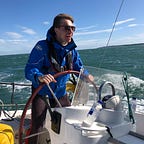Why Planning A Trip Is Good For You Even When You Can’t Travel
What’s the best way to respond to not being able to travel? To plan a trip.
This approach is not sadistic but scientific. Dutch researchers discovered in 2010 that planning a trip makes you happier than actually taking it. These benefits were backed up last year by by an Institute of Applied Positive Research survey, with 97% of respondents saying that having a trip planned made them feel better.
You might think that you’d be better off planning something you can actually have now, like the delivery of a major purchase. But the wonderfully titled 2014 Cornell study Waiting for Merlot found that anticipating an experience such as a trip can increase a person’s happiness significantly, far more greatly in fact than anticipating a material purchase.
Co-author of the study Matthew Killingsworth told National Geographic that this is partly because, “In a sense, we start to ‘consume’ a trip as soon as we start thinking about it. When we imagine eating gelato in a piazza in Rome or going water skiing with friends we don’t see as much as we’d like, we get to experience a version of those events in our mind”.
Clinical psychologist Erica Sanborn agrees, suggesting to Departures that, “Planning a trip provides a mini-mental vacation each time we sit down to think about it”.
So, how can we get the most out of planning a trip we might not necessarily be able to take? Do we have to plan precisely which palm tree we’re going to picnic under?
The answers lie in savoring, a set of positive psychology strategies to enhance enjoyment identified by Fred B. Bryant and Joseph Veroff. These 9 approaches can help us ensure triumphant trip planning whether we can go or not. I’ve adapted them to their planning purpose in the following list:
- Sharing with others. Planning a trip with others increases your pleasure. You could set up a WhatsApp group with the people you’d most like to take to the Mexican mountains and get exchanging ideas. Even if that’s not possible, you can imagine who you could share the trip with and the enjoyment they would get from it. Perhaps you’d picture skydiving over the Great Barrier Reef with a sibling.
- Memory building. Imagining the trip, you can actively try to note details of the experience so that you will remember them. Is there a particular hotel rooftop you’d like to visit? An obscure family-run restaurant? A legendary venue?
- Self-congratulation. You can bask in the quality of your trip planning or just congratulate yourself on taking the time to do this positive thing for you. You could give your plan a star rating or even write a flattering review of it.
- Sensory-perceptual sharpening. The more vivid you make your planning, the more it will boost your happiness. Can you plan something that engages every single one of your five senses? You might recreate the smells of the market with funky fruits, the sounds by making a playlist of samba tunes, the tastes through trying a new recipe or takeaway, the feelings through ordering some sand and the sights through a movie marathon.
- Comparison. Comparing our future trip plans to our worst past trips can make us feel extra positive about how amazing they would be. Thinking about my ideal Caribbean beach break would compare to a damp camping holiday when I was younger instantly fills me with a warm glow.
- Absorption. Really give your full attention to the planning process. If you’re reading a travel book or magazine you could turn off digital devices to get lost in it or turn off other notifications if you’re doing some online research.
- Behavioural expression. You might recreate your swimming stroke, ski shimmy or sun lounger power pose in your living room. This sounds silly but makes the process so much more believable for your body and fun for yourself rather than just becoming another serious undertaking.
- Counting blessings. You could focus on feeling thankful for the trips that you will get to go on in the future and similar trips you have been fortunate enough to go on in the past. Even being in the position to plan a trip is something we can feel grateful for.
- Temporal awareness. You can enjoy the trip planning process even more because it won’t last for ever and similarly appreciate the potential trip more greatly because it will be finite. Moreover, we can feel positive that the situation stopping us from travelling now will also change with time.
So, using those strategies, you can maximise the boosting benefits that travel planning can provide even when there’s no way to get away.
Let me know where you’d most like to go in the comments below. Happy (and healthy) power planning!
